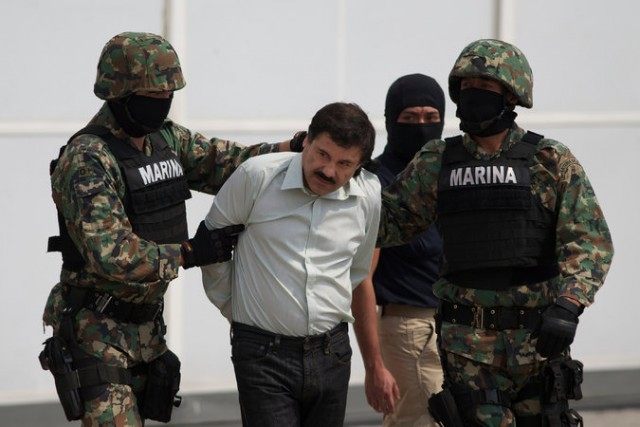Mexico’s drug war was completely rocked in February 2014 after news broke of the arrest of Joaquin “El Chapo” Guzmán Loera, the notorious long-time head of the Sinaloa cartel and arguably the most wanted man in the Western Hemisphere. But despite the U.S. government’s deep desire to prosecute and incarcerate Guzmán in the United States, Mexico’s attorney general announced the kingpin would not be extradited.
Attorney General Jesus Murillo Karam told the Associated Press, “I could accept extradition, but at the time that I choose. ‘El Chapo’ must stay here to complete his sentence, and then I will extradite him.” He continued, “So about 300 or 400 years later…it will be a while.”
Guzmán took the reins of the largest drug cartel in Mexico in the late 1980s, but was arrested and jailed in 1993. He escaped prison in 2001, and continued to control the Sinaloa Federation through the use of heavy protection and bribery until his arrest in the Pacific Coast city of Mazatlán.
Murillo Karam said sending Guzman to the United States would save Mexico a lot of money, but keeping him in Mexico was a question of national sovereignty. This is an abrupt change in policy for the Mexican government, which has extradited several drug cartel kingpins in past years, including former Gulf cartel chiefs Osiel Cárdenas Guillen and Juan Garcia Ábrego. It is likely a sign President Enrique Peña Nieto wants to rely less on the US to take care of its problems, although concerns remain about the potential for El Chapo to escape prison once more. Murillo Karam has dismissed these concerns, saying that risk “does not exist.”
Sylvia Longmire is a border security expert and Contributing Editor for Breitbart Texas. You can read more about these issues in her new book, Border Insecurity: Why Big Money, Fences, and Drones Aren’t Making Us Safer.

COMMENTS
Please let us know if you're having issues with commenting.